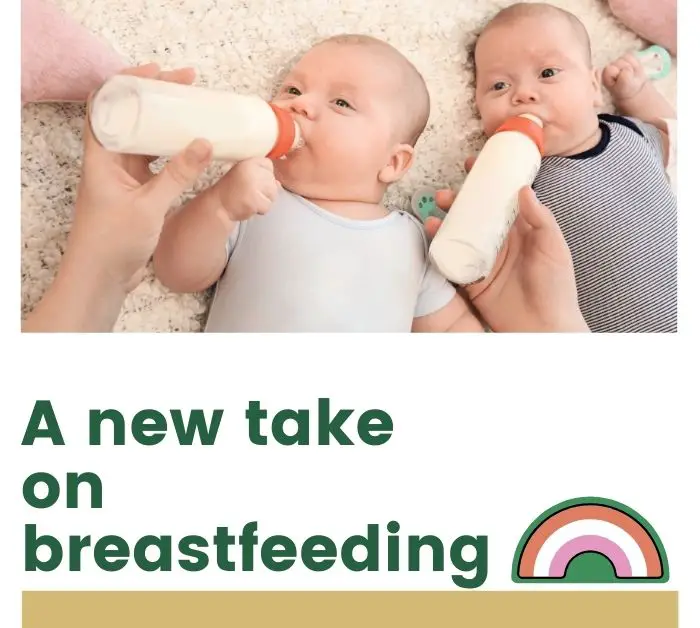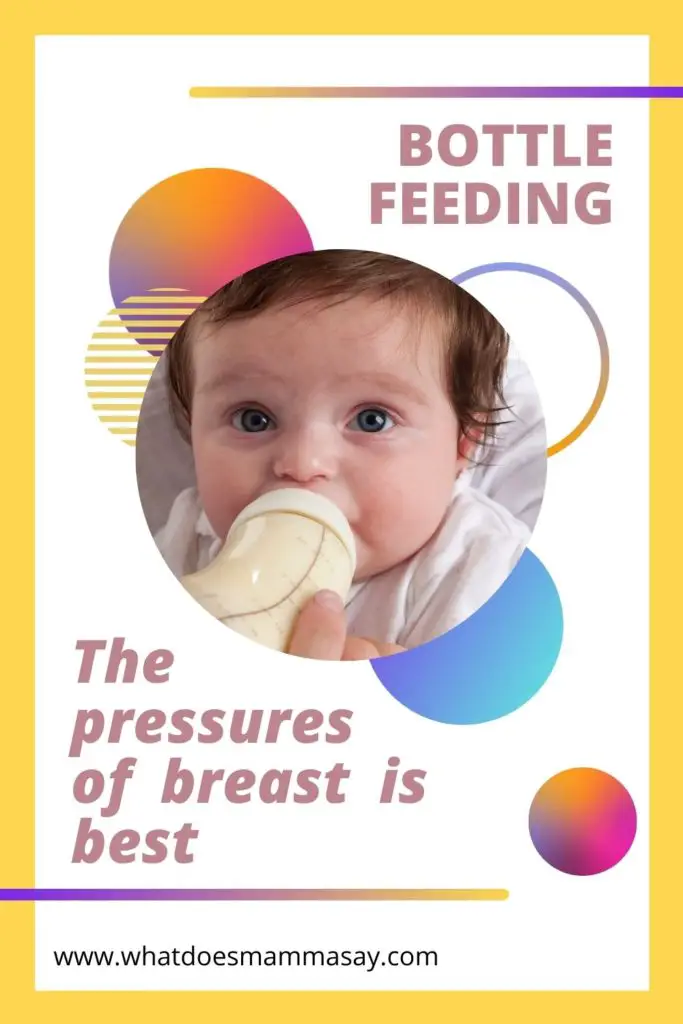August is national breast-feeding month. It’s a big month for education, connection and getting that perfect latch. Agencies can provide important outreach for new moms because learning to breastfeed often requires community support.
We will hear over and over how “breast is best,” but I prefer to hear “fed is best.”
It takes a lot of the pressure off new moms when breastfeeding doesn’t work for them. Some families cannot afford formula and some families chose to feed as naturally as possible.
And some families have two dads who often get left out of the “breast is best” campaign.
Breastfeeding is glorified as the one true way to bond with your child and ensure their superior health in the future. It is so idealized that it doesn’t leave room for alternatives, or for individual experiences.

I was blessed with twins and tandem feeding was the vision I had for us. I was married to this idea for so long that we tossed the book on formula and never gave it a second thought.
I read everything I could find on tandem breastfeeding to make sure I was going to breastfeed my twins perfectly and for as long as I could. I read all the how-to guides, the tips and tricks for making it work. I watched videos made by other twin moms and I purchased all the pillows and supplies they recommended for our success with breastfeeding in tandem.
Despite my perfect planning, my body had a plan of its own.
My babies were born a month premature and even though they were spared the NICU, they needed to learn how to suckle. It wasn’t an instinct for them to root for food, so we spent days before leaving the hospital training them.
To make matters worse, my milk supply was non-existent!
The nurses explained this can happen and not to worry, we can supplement with formula while we wait for my supply to let down.
I believed in “breast is best” so hard, that the thought of formula feeding my twins made me panic. I cried at the thought of ruining them against breast milk and worried about all the “garbage chemicals” inside that formula.
My babies needed to eat, and formula was now our only option.
Tandem breastfeeding is a team effort. It isn’t as simple and as magical as all the articles made it seem. It required two nurses, a lactation consultant, and a pediatrician for each feeding. Each nurse carried a baby to me, laid them against me and helped them latch.
My boobs were squeezed and smooshed by nurses who no longer see body autonomy, just the task at hand, while the doctors lectured me not to “get too comfortable with formula feeding.” Once we were positioned exactly right, I’d hold the babies closely while the nurses put a small tube in their mouths.
The tube was attached to a syringe filled with formula. They would push the formula through the tube while the babies ate, and I held them. This was supposed to simulate breastfeeding enough to train my body and their instincts to latch.

Once the babies were fed, burped, and swaddled they returned to their cradles while I began furiously pumping like it was my sacred duty. I watched the clock like a hawk so I wouldn’t miss the exact timing of my pumps.
Having visitors didn’t even deter me from my mission, if it was time to pump, I pumped. I pumped until my nipples cracked and I was in pain.
In between pumps I’d spend 45 minutes “suck training” my babies with the team while praying tandem breastfeeding would work. I wanted so badly to be able to have this experience. After all, it’s the holy grail of baby/parent bonding.
Without that initial bonding, I’d be doomed for life with a subpar relationship with my kids, and they’d never thrive. At least that was the message I received from other moms online and now the medical staff caring for us.
Related articles
Important breast-feeding questions answered
Did bonding with baby happen for you immediately?
Baby things to buy before birth
After five days of pumping and feeding around the clock, and feeling the pressure to get it all right, I broke.
After another painful pump session that resulted in zero milk for my babies I began sobbing. Deep, heavy, snot filled sobs. My typically stoic husband froze like he just snagged a trip wire and waited. “I am a failure. I can’t even feed my own babies; I’ve already failed as a mom,” I cried.
He assured me that I was doing everything right and offered that maybe I should take a break. I continued to sob loudly enough for a nurse to hear me and she came running in to check. I shared my same lament with her.
“Do you have this big team at home like you do here at the hospital? Do you have someone to bring you the babies and check your milk supply?” she asked. “Well, no,” I said while wiping my bare arm across my sticky wet face.
“Then don’t put so much pressure on yourself. This is supposed to be the time you spend comforting your babies. Don’t let this pressure ruin it for you. Plenty of babies thrive on formula.”

Logically, her words made sense to me.
She gave me permission to let go of trying so hard and to let go of this pressure to make it all perfect. But it didn’t save me from my guilt. I spent the next three years crying over milk that never came in. I felt like a failure every time a mom posted her great success with tandem breastfeeding.
It worked for them, but it didn’t work for me and that would send me into a downward spiral of shame and self-blame. If only I didn’t have a c-section, if only I had tried a few more days, if only I had met with a lactation professional before my babies arrived.
For the first three years of my motherhood, I felt like I wasn’t enough because the “breast is best” campaign failed me.
There are plenty of studies proving the benefits of breast milk, but there are also plenty of studies proving that formula feeding has benefits too.
Feeding our kids is priority number one. Both methods require work and can be stressful, but we should never pressure new moms to make the same choice we’d make. We should be offering support, affirmation, and acceptance that as mothers, we know what works for our babies.
Whether feeding your baby by breast or bottle, successful feedings are a major milestone in child development.
About the author

Roxanne Ferber is a twin mom and owner of The Whatever Mom blog where she shares the messy parts of parenting. For the last six years she has made an honest effort to normalize the messy parts of motherhood and offered support to other hot mess moms who think they are all alone. Follow her on Facebook and Instagram for a closer look at her messy moments.

Hi there! We are Cristina and Monica, moms, teachers and friends. Read more about us and our mission here.


Thank you for sharing this story! It helps others, like myself, to understand!
So sorry you went through this. I agree, the breast is best campaign can be damaging. I tried supplemental feeding systems as well, and my babies were just losing weight. Unfortunately my breast was not best, but my babies were fed and nourished and that is all that truly mattered. This was a great read, thank you.
This was a wonderful message. It’s true that the most important thing is that your babies are eating well and gaining weight. Moms tend to feel guilty about everything but in actuality they’re doing a great job. I couldn’t tell if you were breastfed or formula fed by looking at you. It won’t matter in the long run.
Sorry you had to go through this. I went through something very similar with my first baby and was mortified I couldn’t produce milk for her. My health visitor made me feel like a failure and a big pile of poop. Thankfully my baby grew to be big and healthy on formula. I know longer feel guilty. Fed is best!
I’m so sorry tandem feeding didn’t work out for you. It sounds like you gave it your all, and I think it is so important to post stories like these so others don’t feel so alone when they are struggling. Thank you for sharing